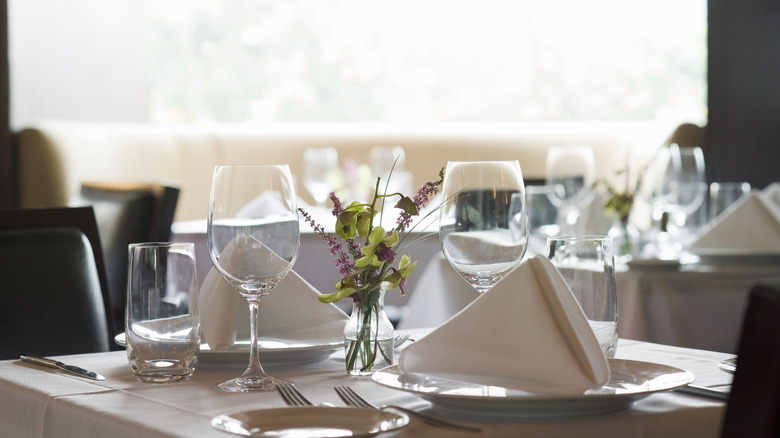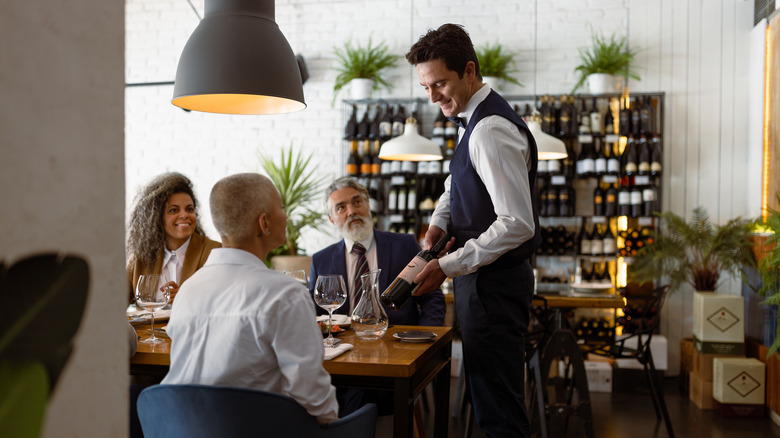Here's How Long 70% Of Diners Will Wait For A Restaurant Table
Hunger is the best spice, or so the popular French saying goes. The exact phrase is "Un bon repas doit commencer par la faim," which means that a good meal begins with hunger. All the same, the point is clear: Sometimes, waiting brings the most enjoyment out of an experience. But this point doesn't exactly translate for American diners, it seems. According to a survey conducted by Toast, a whopping 72% of diners do not wait more than 30 minutes for a table at a restaurant. This may seem like a minimal amount of time for those living in a restaurant-dense city like New York, where reservations are hard to get and restaurants have wait times that veer into several hours. However, for most diners, the threshold for waiting for a table at a restaurant only extends to about half an hour. This result roughly corresponds with an exclusive survey from Tasting Table, which found that over 80% of respondents wouldn't wait more than 30 minutes for a table.
This aversion towards long wait times doesn't necessarily correspond with a trend towards increased reservations. The survey conducted by Toast also found that only 12% of respondents make a reservation each time they dine out. However, Toast did conclude that diners were more likely to make a reservation for special occasions. Since most diners don't regularly make reservations, this might just be the key to avoiding a long and cumbersome wait.
Longer wait times are the new normal
Growing impatience over long wait times at restaurants could also come down to another issue: increasingly longer wait times in general. Although it seems that our appetites for the restaurant lobby have dissipated over time, many restaurants are currently understaffed, which further highlights this inconvenience. This industry-wide issue comes down to several factors. For one, the COVID-19 crisis shifted many food service workers out of the industry and into less physically-demanding jobs. And now, many restaurants are struggling to adequately fill open positions.
Other factors that contribute to long wait times include supply chain shortages, which have impacted the restaurant industry in the years following COVID-19. Ongoing shortages, along with the increased price of food, have made the terrain of the restaurant world a lot bumpier overall. This not only causes price hikes, but it also impacts both the number of employees and the daily operations of many restaurants.
Beyond this, it seems that many restaurants just aren't open for as long as they used to be. According to Datassential, as of 2022, restaurants are open for 6.4 hours fewer each week, on average. And this tight squeeze for restaurant schedules could easily cause an extended wait time for potential diners. So, next time you decide to go out for dinner, you might want to make a reservation beforehand — or else you'll risk a potentially cranky wait. Unless, of course, you adopt the French mentality and taste the difference.

